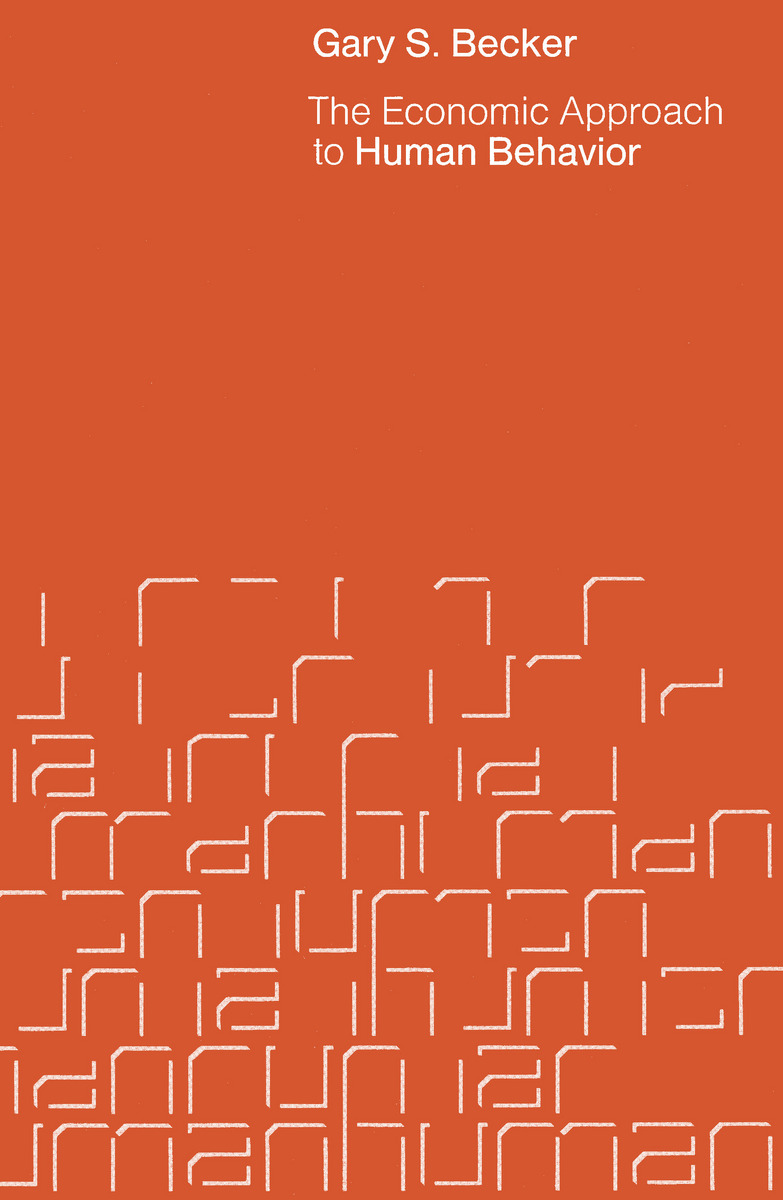Cloth: 978-0-226-04111-7 | Paper: 978-0-226-04112-4 | Electronic: 978-0-226-21706-2
DOI: 10.7208/chicago/9780226217062.001.0001
AVAILABLE FROM
University of Chicago Press (paper, ebook)Brytewave (CafeScribe-Follett Higher Ed)
Chegg Inc
Kno
ABOUT THIS BOOK
"Becker's highly regarded work in economics is most notable in the imaginative application of 'the economic approach' to a surprising breadth of human activity. Becker's essays over the years have inevitably inspired a surge of research activity in testimony to the richness of his insights into human activities lying 'outside' the traditionally conceived economic markets. Perhaps no economist in our time has contributed more to expanding the area of interest to economists than Becker, and a number of these thought-provoking essays are collected in this book."—Choice
Gary Becker was awarded the Nobel Prize in Economic Science in 1992.
TABLE OF CONTENTS
Part 1. Introduction
1. The Economic Approach to Human Behavior
Part 2. Price and Prejudice
2. Effective Discrimination
Part 3. Law and Politics
3. Competition and Democracy
4. Crime and Punishment: An Economic Approach
Part 4. Time and Household Production
5. A Theory of the Allocation of Time
6. The Allocation of Time and Goods over Time
7. On the New Theory of Consumer Behavior (with Robert T. Michael)
Part 5. Irrational Behavior
8. Irrational Behavior and Economic Theory
Part 6. Marriage, Fertility, and the Family
9. An Economic Analysis of Fertility
10. On the Interaction between the Quantity and Quality of Children (with H. Gregg Lewis)
11. A Theory of Marriage
Part 7. Social Interactions
12. A Theory of Social Interactions
13. Altruism, Egoism, and Genetic Fitness: Economics and Sociobiology
References
Index
